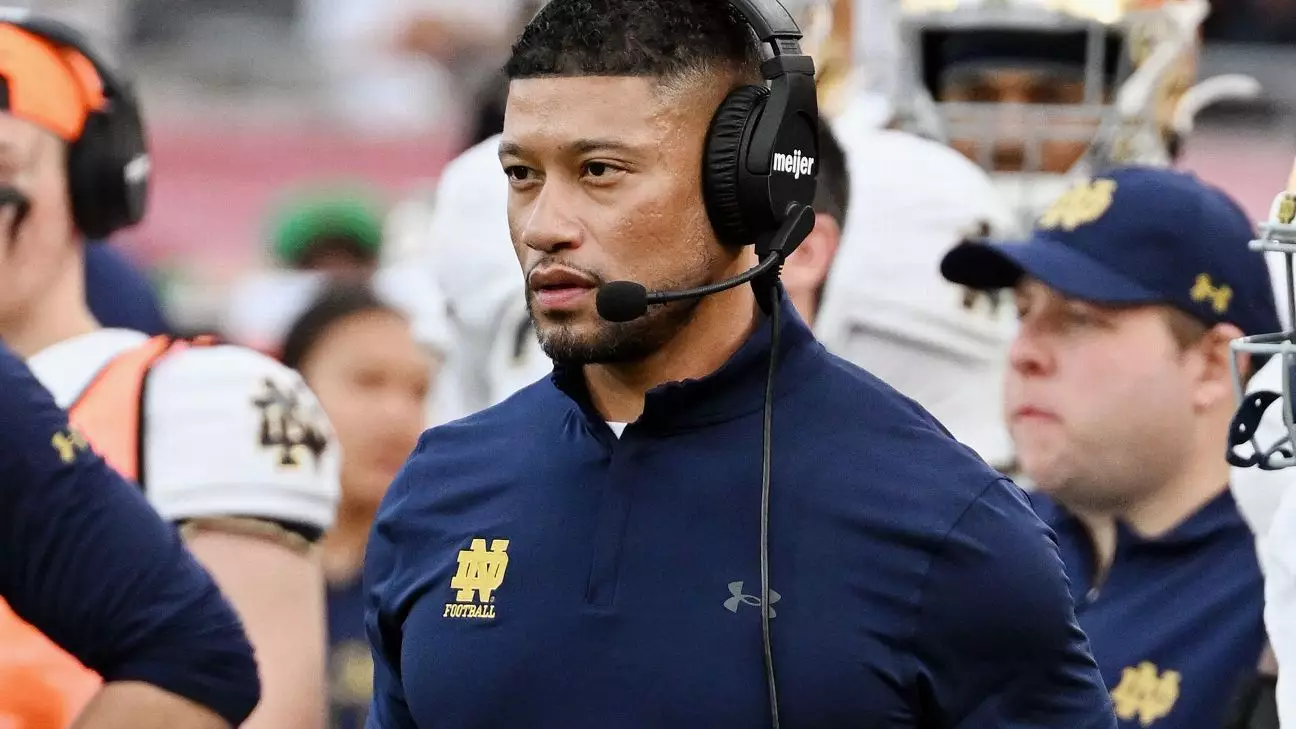In a remarkable turn of events for college football, the upcoming College Football Playoff Semifinal at the Capital One Orange Bowl promises not only thrilling competition but also significant historical implications. Notre Dame’s head coach, Marcus Freeman, and Penn State’s James Franklin stand on the threshold of making history. The winner of this highly anticipated showdown will become the first Black head coach to lead a team into the national championship game, an achievement that underscores both the challenges and progress of diversity in athletics.
Coaches Freeman and Franklin embody a shift in the tapestry of college football. As they prepare for their teams to clash on the field, they are acutely aware of the broader context surrounding their match. This moment is not merely a career milestone for either coach but a pivotal point that can alter perceptions and open doors in a profession still grappling with racial representation at the highest levels.
During their press engagements this past Saturday, both coaches reflected on the significance of their upcoming bout. Franklin invoked memories of Super Bowl XLI in 2007, the first to feature two Black head coaches, Tony Dungy and Lovie Smith. This milestone in the NFL offered a glimmer of hope for aspiring coaches across the country, prompting Franklin to recognize the symbolic power of representation in sports. He recalled a time when, as an offensive coordinator at Kansas State, he witnessed the potential impact of such representation on a generation of young coaches.
“As a coach, how significant that was in the profession,” he stated, highlighting how these notable figures could inspire younger generations to envision themselves in similar leadership roles. Franklin noted that while the increase in Black head coaches in college football, from six to 16 over the years, may seem incremental, it represents meaningful progress and an evolving narrative in a landscape that has traditionally been dominated by a lack of diversity.
Freeman, when highlighting his own background, noted that he is also half-Korean, a facet of his identity that adds to his representation in the sport. His acknowledgment of this dual heritage signals an awareness of the diverse perspectives that can shape the future of college football. He articulated a profound understanding of the responsibility that comes with his position: “You’re a representation for so many others that look like you, and I don’t take that for granted,” he remarked, emphasizing his commitment to embodying excellence not just for himself but for those who see him as a beacon of possibility.
Both coaches emphasized a team-first mentality that transcends personal ambition. For Freeman, the aim is clear: “More than anything, I want to achieve team glory with this program.” It’s a statement that reinforces the idea that leadership in sports is not simply about individual accolades but also about strengthening the collective spirit and success of the team.
As the conversation turned to mentorship and support for emerging coaches, Freeman expressed a desire to help others grow within the profession. His perspective suggests that genuine impact comes from taking actionable steps to support aspiring coaches. “If you want to truly help some people, then you’ve got to be one to make decisions and actions that truly help people,” he asserted. This sentiment speaks to the larger obligation that leaders in any industry have: to lift others as they climb.
Franklin, recognizing the honor of facing off against Freeman, expressed commitment not just to his own team but also to the larger community of young athletes. His respect for the game and its evolving landscape serves as a reminder that while competition may reign on the field, the legacy left off the field holds equal weight.
As the Capital One Orange Bowl draws nearer, the narratives woven by Freeman and Franklin highlight shifts in college football that extend beyond mere wins and losses. Their battle on the field is emblematic of an ongoing conversation about representation and opportunity in sports. For young coaches, players, and fans, this semifinal does not just represent a chance for victory; it signifies a powerful moment that could lay the groundwork for a more inclusive future in college football. The outcome will undoubtedly reverberate throughout the sport for years to come, as these trailblazers continue to pave the way for those who follow.

Leave a Reply